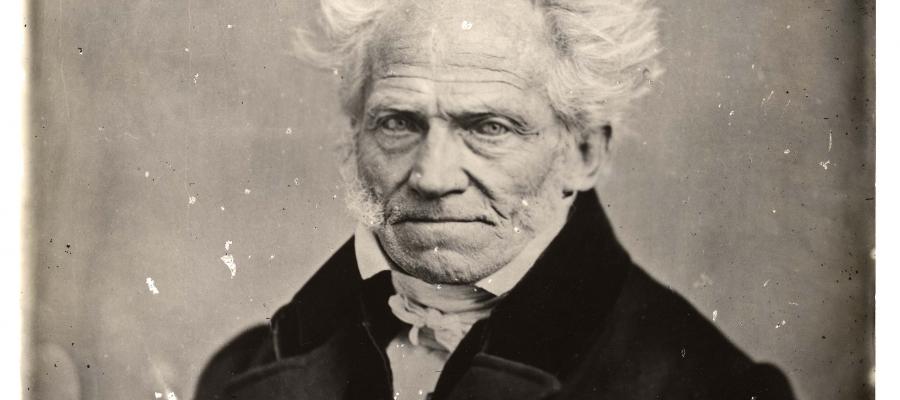Wanting to Want for Its Own Sake
15
Apr 2019
Here is one of the most surprising findings that replicates well in social psychology: rewarding a kind of action does not boost motivation to perform that action. In fact, quite the opposite is true. Rewarding an action ultimately tends to decrease people’s motivation to perform that action. Part of the problem seems to be that rewards for behavior provide extrinsic motivation. Extrinsic motivation is motivation you have to do something for a different, further goal. When you’re motivated to watch a movie because it will please your friend, you have extrinsic motivation to watch that...
Read morePuzzle 2: What is an Identity?
16
Apr 2020
Since the Corona crisis rages on and we are already into April, it has come time for a second blog whose purpose is to distract you from the woes of the world. In case you missed it, I promised in my last blog that for the duration of the crisis I would write about philosophical puzzles in order to give you, readers, something to occupy your minds. Last month’s puzzle was about whether people have voluntary control over their beliefs. That issue is moderately big in philosophy of mind and epistemology, and most philosophers who think about it lean toward involuntarism—the idea that it...
Read moreBackstage Live with Philosophy Talk
03
Oct 2005
On Sunday, November 6th, 11:30 - 1:30, we will be produce an episode of Philosophy Talk in front of a live audience on the Stanford Campus. Our guest will be Congresswoman Anna Eshoo. The episode will be taped and broadcast at a later date. Our topic will be Legislating Values. This is a special "thank-you" available to those who contribute at least $50.00 to KALW during the fall membership drive. There are still seats available. We invite you to join us for this radio happening. Be part of the show! Mingle with the Philosophy Talk team! Enjoy light food and drink! There are still...
Read moreStanley Cavell and Public Philosophy
24
Jan 2017
In this article, Mark Greif, the essayist and founding editor of n+1, an intellecutal publication, wrote a tribute to his former mentor, the philosopher Stanley Cavell. Using Cavell as a model, and Cavell's own intellectual inspirations, Emerson and Thoreau, Greif asks, what makes a good public philosopher? What makes a philosopher's work especially compelling and more relevant than others'? And following Greif's path, are academia's discouraging conditions now too stifling for the life of the mind? How do we bridge the gap between academic philosophy and public philosophy? Read the...
Read moreTaoism
09
Dec 2015
Lao-Tse, the founder of Taoism, said “Those who know do not speak, and those who speak do not know” So, by that criterion, I can say a something about Taoism, since I know very little. Taoism is one of the greatest and oldest philosophies of China. The big figures were Lao-Tse and Zhuangzi. And their books, the Tao-Te-Ching and the Zhuangzi, are very readable and thought-provoking classics, still widely read in Chinese and, as translated, in all the other major languages. Looking at things on a somewhat grand scale, Taoism belongs to the same period...
Read moreRegulating Bodies
05
Feb 2015
Our topic this week is Regulating Bodies. My first gut instinct is to say that nobody really has the right to tell me what to do with my own body -- not even the government. It’s my body. I can do with it as I please. But then I realize that there are things like mandatory seat belt laws, prohibitions against prostitution, and laws against the buying and selling of bodily organs. All these things involve the regulation of the body. So it is definitely true that the state does regulate our bodies. But should the...
Read moreComment on Pornography by Rae Langton
30
Aug 2009
Posted by Rae Langton John says, first, it's only fantasy, and second, outlawing is always 'a losing strategy'. Well yes, it might be fantasy or pretend: someone is being paid to pretend to be bound, and paid to pretend to enjoy it. The viewer is joining in with the pretence. But (i) note that even fictions are told and experienced against a backdrop of presupposed claims about the real world. For example, the Sherlock Holmes stories make claims about a fictional detective, against the backdrop of real world London. What does porn say or presuppose about the real world? That many...
Read moreDo Victims Have Obligations?
18
Jan 2018
In this 20-minute podcast, Ashwini Vasanthakumar makes the rather provocative claim that victims have obligations too. While victims may not be responsible for being chosen as the unlucky targets of perpetrators or unfortunate circumstances, Vasanthakumar claims, once they escape their immediate ordeal, victims are in "epistemically privileged positions" in virtue of their experiences. Thus, they play an important role in restoring justice by holding perpetrators to account or informing bystanders and potential victims. For example, a victim of torture may be the only person to know...
Read moreDoes Truth Matter?
03
Apr 2006
We've been very, very busy here at Philosophy Talk. I'd like to say that that explains the slowdown in both my and John’s blogging. It does – sort of. We’ve just gotten back from a hecticbut exhilerating road trip. We recorded two shows up in Portland – one in front of an audience of professional philosophers at the annual meeting of the Pacific Division of the American Philosophical Association. That was a blast and I think it will make good radio. But that was just a warm-up for a superblast. We made a combined TV...
Read moreThe Ethics of Homeschooling
03
Jul 2018
It's no secret that black children in American receive a subpar education compared to their white peers: underfunded schools, higher rates of suspension, and largely teachers that are not like them. To address this, some black parents are turning to homeschooling their children, as well as to impart a strong appreciation of Black culture and achievements. Is this self-reliance a form of agency and empowerment in raising confident children, or in fact a step backward from the Brown v. Board of Education and the fight to desegregate schools? Read more: https://www.theatlantic.com/...
Read moreDefense of Transracialism Goes Awry
04
May 2017
In a recent article titled "In Defense of Transracialism" for the feminist philosophy journal Hypatia, philosopher Rebecca Tuvel penned a defense of "transracialism" through an argument that the logic which supports transgender individuals also should lead one to support transracial individuals in their decision to "change" races. The idea for the article came after Rachel Dolezal's controversial case, in which Tuvel "perceived a transphobic logic that lay at the heart of the constant attacks against her." Her article "is an effort to extend our thinking alongside transgender...
Read moreOn Our Cosmic Insignificance
05
Oct 2017
Many people learn about the inconceivably large universe and start to doubt the significance of human life. Some philosophers have argued that this sentiment is actually just confused. An amazing Aeon article by Nick Hughes charts an alternative course for what motivates this thought. After assessing competing views, he ends up coming up with an explanation that seems to neatly account for our intuitions. And then, towards the end of the article, Hughes proposes how we could overcome this strain of nihilistic thinking. Here's the full article: https://aeon.co/essays/just-a-...
Read moreWho Gets to be a Citizen?
15
Sep 2020
Who gets to be a citizen? Should your political rights really depend on where you were born? Would it be better to live in a world without borders? This week, we’re talking about citizenship, political rights, and justice. Citizenship in a country comes with certain rights (like the right to vote, run for office, or be tried by a jury of your peers) as well as certain responsibilities (like the obligation to vote, to serve on a jury, or not to take the side of another government in a war). But what justifies us in handing out those rights to some people and not others? Many...
Read moreWhy (Not) Trust Science?
20
Jan 2023
This week we’re asking why we should trust science—which may sound like a weird question. After all, why would we doubt the method that helps us build bridges and skyscrapers, formulate life saving medicines, and understand the cosmos? A first question here is why some people don't trust good science. Ignaz Semmelweis, a doctor in 19th-century Vienna, had a revolutionary idea. Everybody around him thought that patients were dying because they had “an imbalance of humors”; Semmelweis gathered data to show that washing your hands between patients was a great way to keep them...
Read moreMemory and the Self
25
Jan 2014
This week, we are discussing Memory and the Self. Now there is a long tradition in philosophy of thinking that memory and the self are intimately connected. Locke claims, for example, that what makes me today the very same person as I was yesterday, is, basically, the fact that I can now remember what I did or experienced yesterday. So memory, for Locke, is what actually determines who I am. You can probably spot a pretty big problem for Locke’s theory right away. It seems to imply that if I don’t remember doing something, then I didn’t do it...
Read moreThe Prison System
21
May 2011
This week, we tackle the prison system. America imprisons more of her citizens, for more crimes, and for longer periods than any other nation in the world. At the beginning of 2008, nearly two and a half million people were in prison in the US. That’s one in every one hundred adults. China, with a population about four times ours, had a prison population of about one and a half million during that same period. Does this mass incarceration really serve the interest of justice? Or is it an inefficient, dysfunctional way of addressing social ills...
Read moreThe Wrong Abortion Question
31
Oct 2018
Is abortion the murder of an innocent child, or the exercise of a woman’s right to control her own body? Or maybe we’re focusing on the wrong question. Abortion is a “wedge issue” that divides Americans into a “pro-life” side that believes a fetus is a person with rights, and “pro-choice” side that believes fetus is a clump of cells which is morally insignificant when weighed against the right to bodily autonomy. Having two sides shout at each other obscures other serious obstacles to reproductive rights in the US—obstacles that both sides of the abortion debate should agree about....
Read moreWhy Not Change Your Core Self?
25
Oct 2019
Let’s say you could snap your fingers and all your various tastes and aesthetic preferences would change overnight. You would appreciate different foods, you would like different books, you would prefer different colors and clothing styles and jokes. Would you do it? I’m guessing your answer is a clear ‘no.’ I would say ‘no’ too. But why? Why not switch? The answer might at first seem easy. It would be really inconvenient to gain an entirely new set of preferences. You’ve set your life up around the ones you already have and you’ve made friends who like the same sorts of...
Read moreSchopenhauer and Prozac
02
Apr 2005
I admit it: I've been reading a lot of Schopenhauer, especially his Essays on Pessimism. They are fascinating, and extremely beautifully (and of course provocatively) written. Here's a cheery and lovely passage: "Could we foresee it, there are times when children might seem like innocent prisoners, condemned, not to death, but to life, and as yet all unconscious of what their sentence means. Nevertheless, every man desires to reach old age; in other words, a state of life of which it may be siad; 'It is bad to-day, and it will be worse to0morrow; and so on till the worst of all." Hmm. ...
Read moreThe Philosophical Dimensions of Reparations
22
Feb 2017
At the end of our recent episode on reparations, John expressed bewilderment about what should be done. That’s understandable. The historical injustices perpetrated against blacks on American soil span four centuries and would be impossible to quantify. It seems impossible to settle who should pay reparations, given that slaveholders are all dead, and who should receive them, given that descent is a complicated affair. And the political sentiment is mostly contrary, even among liberals. One’s feeling of bewilderment is apt to increase, at least temporarily, upon reading relevant historical...
Read moreAltered States of Consciousness
19
May 2016
It’s not that difficult to alter your consciousness. You might start your day with a stimulating cup of coffee, or end it with a relaxing cocktail. Even without imbibing any substances, you can alter your consciousness by doing various activities, like yoga, meditation, or with a simple walk in the woods. But if you really want a powerful, fast, and direct way to get into a radically altered state, try taking a mind-altering drug, like LSD, peyote, or ayahuasca. Humans have been altering their consciousness with psychedelics for millennia, but it’s only fairly recently...
Read moreScience and Politics: Friends or Foes?
12
Jun 2015
This week, we’re thinking about the relationship between science and politics. Are they friends or foes? I can get myself in a cynical frame of mind in which I think to myself that whether they are friends or foes depends on where the money is. I'm kidding -- sort of. I mean have you ever met a politician who was against an expensive boondoggle -- like the space station or the super-conducting super-collider -- that was about to be built in his or her district? Plus, ask yourself how many politicians turn a blind eye to...
Read moreWilliam James and the Squirrel Example
07
Aug 2010
Russell Goodman, who was our guest a couple of weeks ago, for our episode on William James sent the following remarks as a follow up to our on-air conversation. They are posted here with his permission. I wanted to comment on that squirrel going around the tree story with which James opens the second chapter of Pragmatism. It's a great story, but it seems, from my experience, to itself provoke as much disagreement and puzzlement as the squirrel and the man themselves do. At first blush, it seems like a good verificationist story- a dispute about two...
Read morePhilosophy and Shelley's Frankenstein
31
Oct 2017
With its 200th anniversary fast approaching in 2018, it might be time to revisit Mary Shelley's Frankenstein. In this audio clip from ABC, academics in the "Philosopher's Zone" discuss major themes and the predominant philosophies of the novel's day. Drawing from Shelley's Calvinist upbringing and prevalent ideas of the Romantic period, the hosts expand upon one-dimensional analyses of the novel, including analyses of the novel as a story about birth envy or as a cautionary tale against bold, scientific endeavors. Instead, as one participant of the discussion argues, the novel...
Read morePoetry, Philosophy, Truth
03
Oct 2007
Howdy folks; Troy Jollimore here. Ken and John were kind enough to invite me to be their guest for the “Love, Poetry, Philosophy” show they taped at Powell’s City of Books in June. And now that the show is being broadcast, they were kind enough to invite me to blog for the show as well. I’m happy to take them up on it—keeping in mind that blogging is a very informal medium, and that what I have to offer may turn out to be no more than a few fairly random thoughts. One of the relations between poetry and philosophy that we didn’t really get to discuss on the show, as I recall...
Read more






















